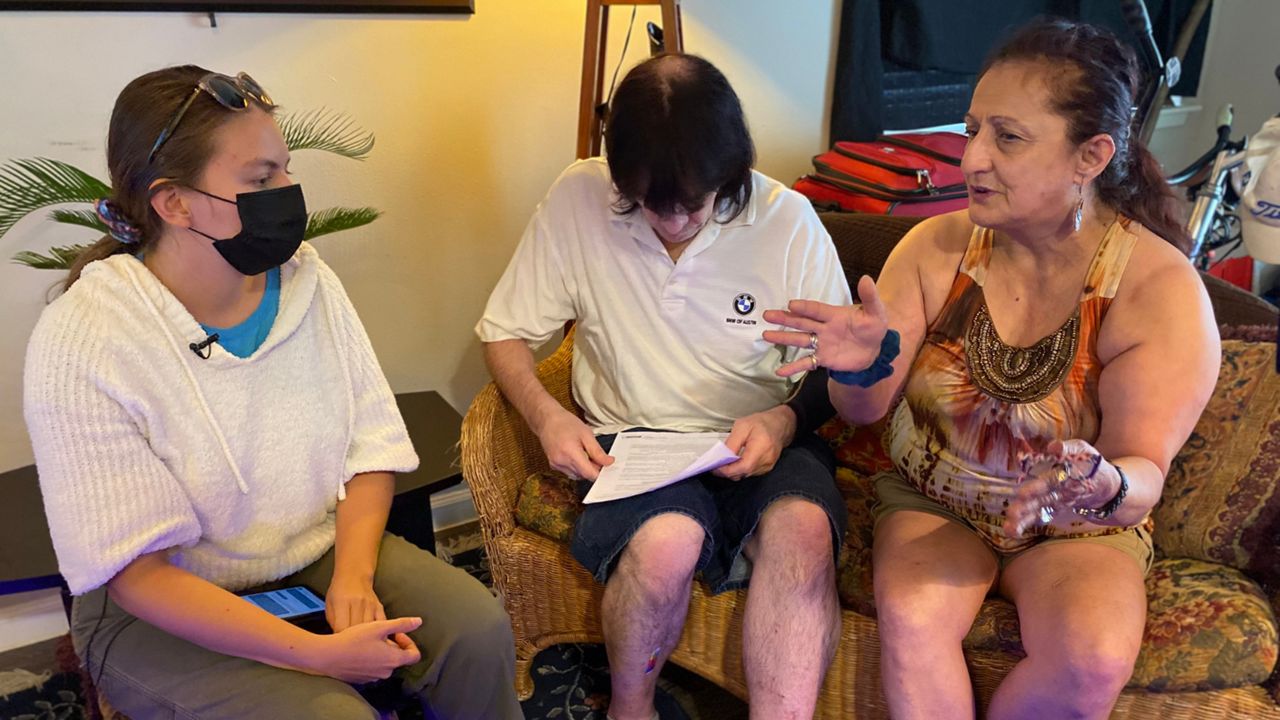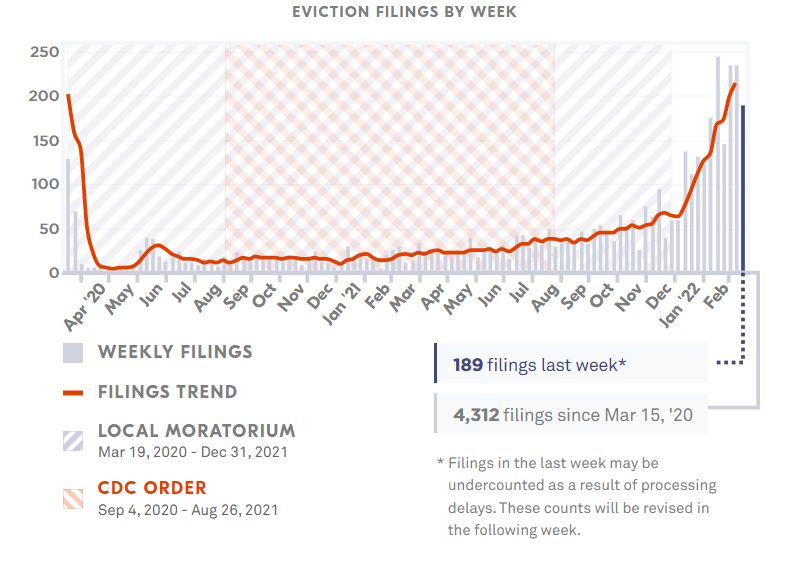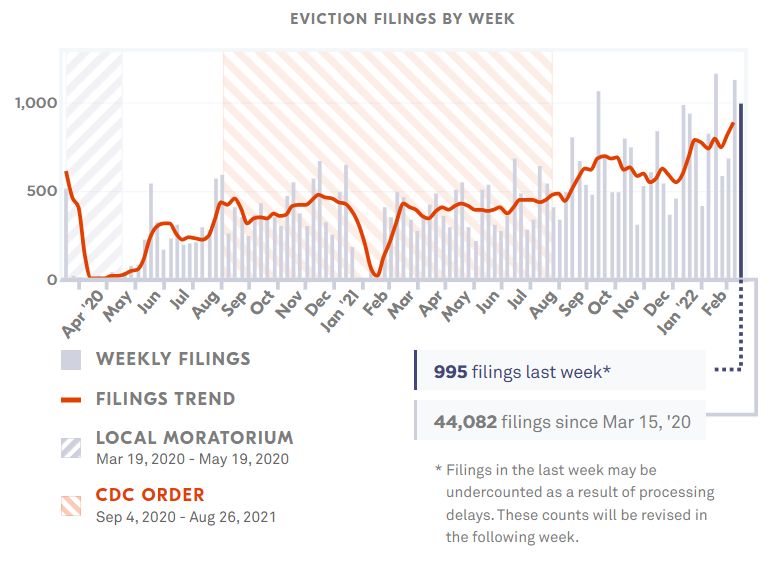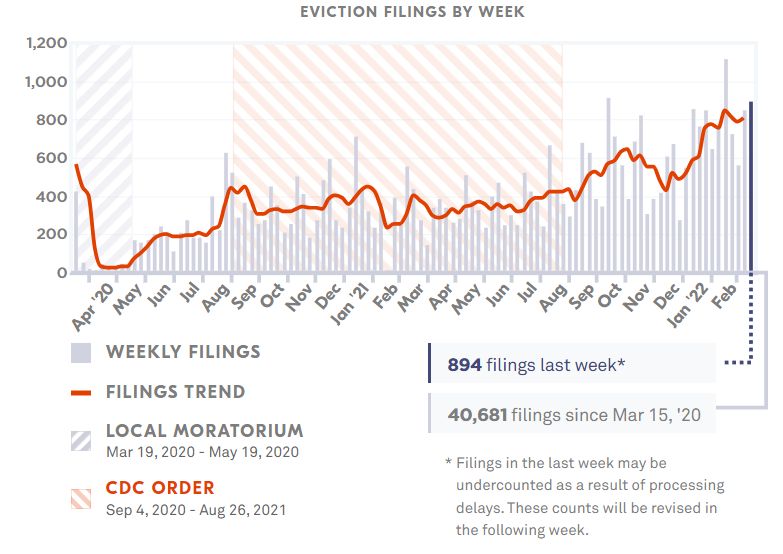AUSTIN, Texas — We're more than two years into the COVID-19 pandemic and many families are still struggling to pay for rent. Eviction filings are on the rise, and some cities are showing higher numbers than pre-pandemic.
Rental aid has dried up in most cities and counties in Texas. And eviction protections that were in place at the height of the pandemic are long gone. Community leaders said this is leading to a new crisis of low-income renters unable to find housing after facing evictions.
Daniel and Mahnaz Smith are packing up their apartment, not by choice, but by necessity. Daniel did some itemizing and prepared boxes to protect their possessions in case they’re evicted.
“When it’s time to be evicted with the constable, they don’t care about any of this stuff, and so… I fear that happening to us,” Daniel said.
For the last two years, the Austin couple has had to fight just to keep a roof over their heads.

Daniel is on the autism spectrum. Mahnaz also struggles with a disability, leaving both unable to work.
“It’s an everyday battle. You pick and choose… which ones you gonna deal with and it gets tough,” Mahnaz said.
The couple received rental assistance from the City of Austin and qualified for Travis County’s funding, but it dried up. Fortunately, Mahnaz finally received a Section 8 voucher that would help them pay for housing.
But her luck didn’t last long. Shortly after, an eviction notice showed up on their door for nonpayment. However, Travis County was already working with the Smiths to cover the rent money owed.
“I have had to absolutely disallow feelings, because feelings get in the way,” she said, choking up.
That’s when housing advocate Solveij Praxis stepped in. Praxis said she’s hearing stories similar to the Smiths' even more now.
“Right now, if you have a disability or something else that prevents you from making enough income to pay your rent, your options are very few,” she said.
This is because state and local rent relief funds have been exhausted. The City of Austin and Travis County programs stopped taking applications. Texas Rent Relief and Texas Emergency Rental Assistance Program also ran out of money. Then, add the shortages in low-income housing and subsidized programs which have created long waiting lists for public assistance, such as the Section 8 voucher.
“I was probably disappointed more than once or twice that I did the right thing and I didn’t see the right result coming back,” Mahnaz said.
Eviction Lab numbers show a huge spike in eviction filings in major cities in Texas.
In Austin, there have been 587 evictions in March, up 47% up from the average.
Eviction filings were only 7% above average in March 2020.

These spikes are fairly recent, too. In January, evictions filings were down 45% from the average and only 5% above average in February. In Dallas, filings have also spiked 47% above average in March compared to 5% below the average the month before.

Fort Worth has seen a steady increase in eviction filings since the end of 2021. Filings went from 31% below average in December to 28% above average in March.

Praxis said what’s happening now is going to create a huge wave of renters with a record of eviction, and if the government doesn’t act fast, this will further add to the homeless crisis in the area.
“If those evictions are moved forward with and end up on tenants’ records, you’re going to see hundreds, even thousands of people not qualifying for housing,” she said.
Even with Section 8 vouchers, the Smiths are still at risk. If a court decides to evict them, they could lose the voucher they waited so long to get.
Take a look at the following housing map.
The Department of Housing and Urban Development shows there are over 70 low-income, elderly and special needs properties in the Austin area.
In March, HUD allocated $125,961,996 to 224 housing projects to help people with homelessness in Texas.
“What happened to humanity, what happened to just a little bit of humanity?” Daniel said. “I just want a little bit man, I’m not even trying to ask for a whole bowl full and I’m not getting it.”
The Smiths said the system that’s designed to protect them failed, but they’ll never stop fighting for each other. Their eviction hearing was set for Thursday.
Spectrum News 1 is waiting to hear the results.



